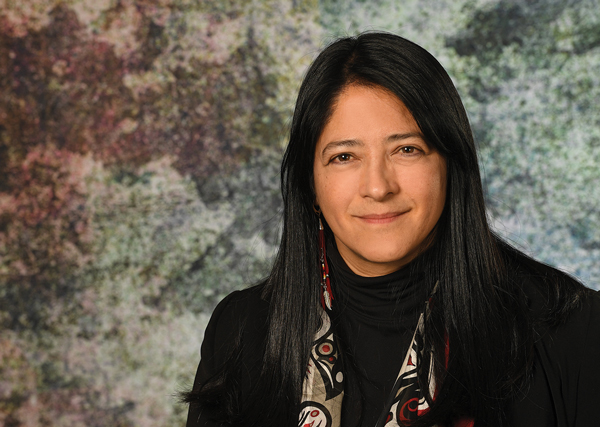Account Login
Don't have an account? Create One
At the Appalachian mountains of New Brunswick, next to the Wolastoq River (St. John River), the Madawaska Maliseet First Nation (MMFN) thrives as a testament to the past, present and future of stable leadership and economic growth.

“There is a dedication to community,” says Chief Patricia Bernard. “We are Wolastoqey, one community out of eight established communities—six in New Brunswick, one in Maine and the other one in Quebec. This is our inheritance, and how we continue to succeed here.”
In this, the importance of women in leadership roles at MMFN cannot be understated. “Our nation has continuously revealed the power of all women,” says Bernard, who is also the MMFN’s senior legal counsel. “My community has been governed solely by women since 2007, and we’ve had a woman chief since 2003.”
Guiding all are community values, which include inclusiveness, respect, education, environmental stewardship, strong governance, and sustainable economic telepayment. On that score, Bernard is crystal clear. “Developing a strong economy that encourages member entrepreneurship and employment is crucial for the present and the future,” she says.
The Grey Rock Power Centre, for example, is one of the MMFN’s proudest achievements. Located just off the TransCanada highway next to Edmundston’s hospital and overlooking the city and the state of Maine, the 36-hectare economic development project began more than 10 years ago. Today, it’s a major economic driver in the region and contributes revenues not only to the MMFN, but also to the City of Edmundston. Employing over 300 people from the surrounding region, it’s home to several restaurants, a major truck stop, dealerships, a casino, a strip mall, and a new hotel.
On the strength of this, Cando (a national Indigenous organization for community economic development) awarded the MMFN the 2018 Indigenous Economic Developer of the Year Award. Says Bernard: “Our community is perfectly positioned for economic growth.”

Central to the MMFN’s approach to economic development, of course, is the proper care and management of the land. After all, Bernard notes, the Maliseet people (Wəlastəkwewiyik) have been here in the St. John River watershed—extending from the St. Lawrence River to the Bay of Fundy—since time immemorial. “The land is as important to today as it has always been for our people in accordance with environmental regulations and our land laws,” she says.
For over 50 years, the Government of Canada had final say over the size and management of MMFN reserve land. That changed last year when, after a protracted court challenge led by Bernard and other leaders, it paid out $145 million to the First Nation—the largest specific federal land claim settlement of its kind in Maritime history. The settlement also included an option for the MMFN to acquire an additional 2,000 acres for its reserve.
Prior to this, the MMFN had moved toward self-government by adopting a land code, making it the only First Nation in New Brunswick, to date, to achieve independence over its own land use. Says Bernard: “Since the adoption of our land code, our operational progress has grown exponentially.”
Still, she says, there is work to be done. Together with five other Wolastoqey communities, the MMFN has filed a title claim to traditional, unceded and unsurrendered land in New Brunswick, naming the provincial government and corporate giants, such as J.D. Irving and NS Power, in the suit filed in 2021. “We are owed compensation for the last 200 years of illegitimate resource and land use,” Bernard notes. “Peace and friendship treaties recognize our title to the land.”
Ultimately, she says, “We’ve come so far, we’ve succeeded so far, and we will continue to succeed. We will grow and take our rightful place in our traditional territory—not only with respect to having a say, but also economically. Our goal is to Wolastoqey Land while creating business opportunities for all.”
Comment policy
Comments are moderated to ensure thoughtful and respectful conversations. First and last names will appear with each submission; anonymous comments and pseudonyms will not be permitted.
By submitting a comment, you accept that Atlantic Business Magazine has the right to reproduce and publish that comment in whole or in part, in any manner it chooses. Publication of a comment does not constitute endorsement of that comment. We reserve the right to close comments at any time.
Cancel